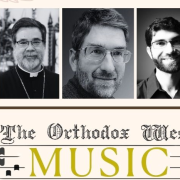From ‘Gnosticism in the Work Place‘:
Viewing the physical order as spiritually neutral can lead to the “seeker-friendly” posture of accommodation and compromise (what Hunter describes as the “‘relevance to’ paradigm” of adaptation) or to the more “fundamentalist” and “pietist” posture of retreat and isolation, since in both cases the work of redemption has essentially become privatized and detached from the material world. Under both approaches, the arenas of art, politics, drama, film, economics, literature, architecture, education, fashion design, gardening, and the media become “secular” by default. The only disagreement between the isolationism of fundamentalism and the accommodation of the “seeker-friendly” posture is whether one should retreat from this “secular order” or capitulate to it. Fundamentalists will often take the former course while more accommodating and liberal forms of Christianity are often tempted to the second. In both cases, what tends to be left intact is the basic sacred/secular divide. Serious Christian engagement with all of life—including our Monday through Saturday jobs—becomes the chief casualty of this dualistic posture.


